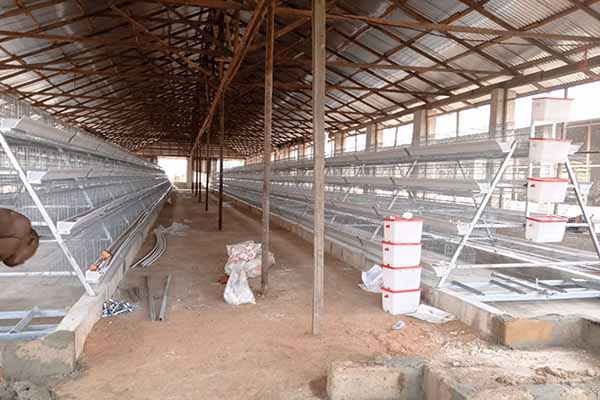Improving Poor Ventilation in Uganda Chicken Farms: A Guide for Effective Farm Management
Time : 2025-07-24
As a leading poultry equipment manufacturer from China, Livi Machinery understands the importance of proper ventilation in chicken farming. In Uganda, where chicken farming is a vital part of the agricultural sector, poor ventilation can lead to numerous health issues for both the chickens and the farmers. In this article, we will discuss the challenges of poor ventilation in Uganda chicken farms and provide practical solutions on how to improve it.
Challenges of Poor Ventilation in Uganda Chicken Farms
Poor ventilation in chicken farms can lead to a range of problems, including:
– Health Issues: Poor air quality can lead to respiratory diseases in chickens, such as chronic respiratory disease (CRD) and infectious bronchitis.
– Reduced Egg Production: Stagnant air can cause stress in chickens, leading to a decrease in egg production.
– Increased Energy Costs: Inadequate ventilation forces farmers to use more energy to maintain the desired temperature and humidity levels.
– Poor Biosecurity: Poor air circulation can lead to the spread of diseases and pests.
How to Improve Ventilation in Uganda Chicken Farms
Improving ventilation in Uganda chicken farms is essential for the health and productivity of the chickens. Here are some practical steps that farmers can take:
1. Assess the Current Ventilation System
Before making any changes, it’s important to assess the current ventilation system. This involves checking the type of ventilation (natural or mechanical), the size of the openings, and the air flow within the farm.
2. Increase Natural Ventilation
Natural ventilation is the most cost-effective way to improve air quality in chicken farms. Here are some tips:
– Strategic Placement of Windows and Doors: Ensure that windows and doors are strategically placed to allow for cross-ventilation.
– Ventilation Shafts: Install ventilation shafts that can be opened and closed as needed to control air flow.
– Roof Vents: Consider installing roof vents to allow for additional air exchange.
3. Use Mechanical Ventilation Systems
Mechanical ventilation systems can be used to supplement natural ventilation or as a standalone solution. Here are some types of mechanical ventilation systems:
– Fan and Baffle Systems: These systems use fans to move air through baffles, which help to distribute the air evenly throughout the farm.
– Air Inlet and Exhaust Fans: These fans can be used to create a positive or negative pressure within the farm, depending on the desired air flow.
– Heat Exchangers: Heat exchangers can be used to maintain a constant temperature and humidity level in the farm.
4. Maintain Proper Air Flow
Proper air flow is crucial for maintaining a healthy environment in the chicken farm. Here are some tips:
– Regular Cleaning and Maintenance: Keep all ventilation openings clean and free of debris to ensure optimal air flow.
– Adjusting Fan Speed: Adjust the speed of the fans based on the weather conditions and the number of chickens in the farm.
– Use of Air Filters: Install air filters to remove dust, pollen, and other particles from the air.
5. Monitor Air Quality
Regularly monitor the air quality in the chicken farm to ensure that it meets the required standards. Use air quality monitors to measure the levels of ammonia, carbon dioxide, and other harmful gases.
Conclusion
Improving ventilation in Uganda chicken farms is essential for the health and productivity of the chickens. By following the tips outlined in this article, farmers can create a more comfortable and healthy environment for their chickens, leading to increased egg production and reduced health risks.
About Livi Machinery
Livi Machinery is a leading poultry equipment manufacturer from China, specializing in the production of high-quality poultry farming equipment. Our products are designed to improve the efficiency and productivity of chicken farms, ensuring the health and well-being of the chickens.












